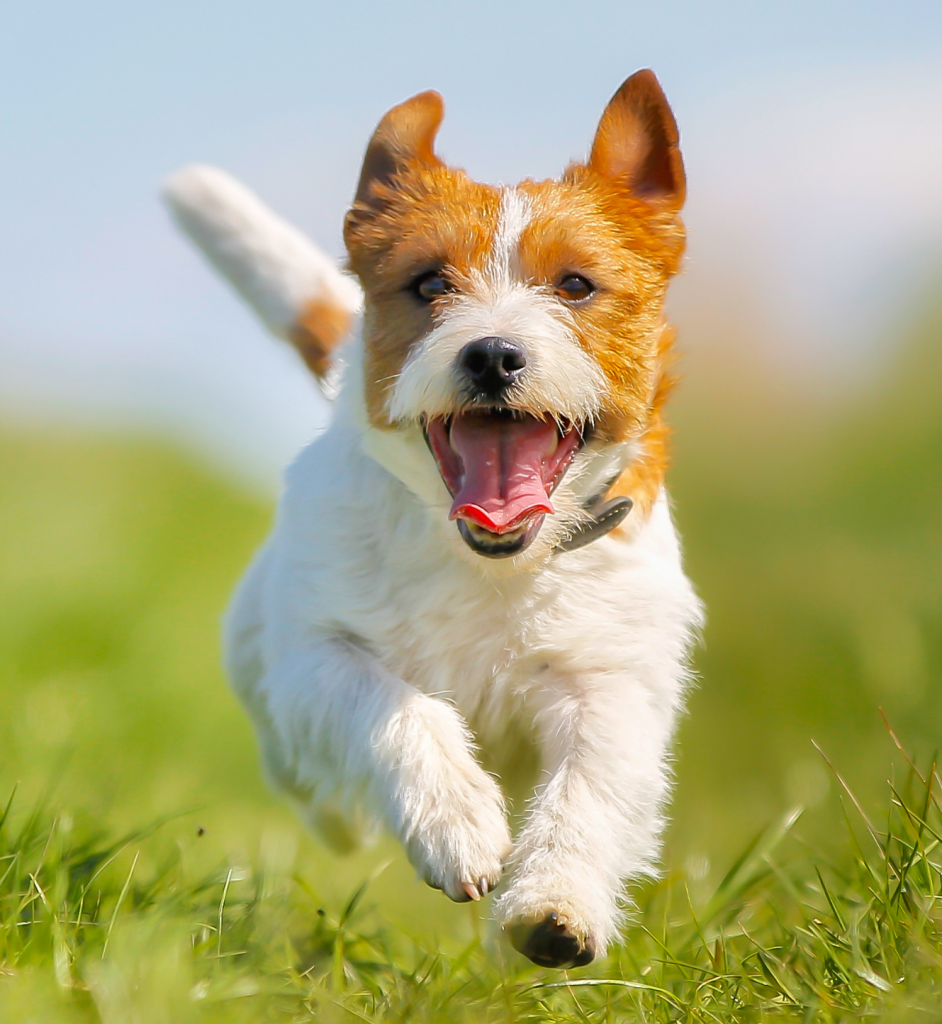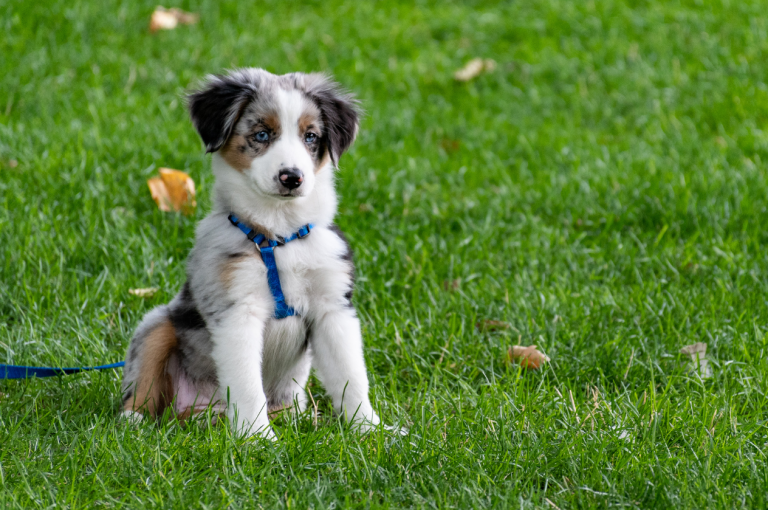Congratulations! Adopting a puppy is a wonderfully exciting experience but there is a lot to learn! Don’t feel overwhelmed though! Here at Melton Family Vets, we have put together some important tips to make sure you and your puppy start off right.

All Victorian councils require dogs over three months to be registered; it is generally cheaper to register a desexed dog. Check your local council website for details. Your dog will also need to be microchipped. Melton Family Vets can take care of this for you on your first visit. Don’t forget to update your details on the Central Animal Registry if you change address.
Before bringing your puppy home do a quick sweep of your house and secure items which may be knocked over and damaged by your excitable new friend! You should also pick up any small items which could be dangerous for your puppy to swallow. Install baby gates if you need to block off parts of your house.
When you bring your puppy home for the first time, let them explore quietly and get used to their surroundings. They should start sleeping in their bed the very first night. A cosy basket that is big enough to fit them at adult size is perfect. Until your puppy is toilet trained you may need to put some puppy pads down.
If you have other pets, try to introduce them to each other in neutral areas and not near sleeping or eating zones. During the initial phase, feed pets separately.
Find out what food your puppy is used to and start with something similar to begin with. Make changes gradually over time so as not to upset their stomachs. Speciality puppy food contains all the vitamins and nutrients a growing puppy needs. Feed up to four times a day until they are three months old and then reduce to three times a day until 6 months old. At this point you can drop back to twice daily. Ensure they have clean, fresh drinking water at all times.

Never scold or hit a puppy who goes in the wrong place. The key to effective toilet training is rewarding your puppy for good behaviour, and not punishing them for doing the wrong thing. If you have to leave your puppy alone indoors, make sure you put puppy pads or newspaper down so that they always have somewhere they are allowed to go. If your puppy does do the wrong thing, clean up without a fuss and preferably without them watching.
Dogs should be treated for heartworm disease, intestinal worms and fleas on a regular basis. There are many preventative options, from injections to ointments and tablets, which your vet can discuss with you. Since your dog will be spending a lot of time outside, in parks and playing with other dogs, it is important to stay on top of flea treatments to avoid any home infestations.
If you have doubts about desexing your puppy please get in touch with our vets, and we can discuss the pros and cons. Generally, the advantages of desexing your puppy far outweigh the disadvantages however we do recommend waiting until your puppy has matured to at least 6 months before going ahead.
At Melton Family Vets we are passionate about preventative care as this can greatly improve the quality of life for your new pooch. Preventative health measures for kittens include parasite control and vaccinations. For older dogs we might suggest urine or blood screening to catch any problems before they become serious. Early detection is the key to successful treatment.
We recommend you vaccinate your puppy for the following diseases; regular booster shots will be required throughout their lives.

Get your puppy used to teeth brushing from day one and you can help your dog avoid dental disease. Discolouration of the teeth and bad breath can be signs of dental problems. Avoid giving your puppy hard chew treats such as bones or hooves as these can cause broken teeth and digestive problems. Ask one of our friendly vets about approved chew toys for young dogs. Puppies will generally lose their baby teeth by the age of 7 months. Please bring them in for a visit around this age so we can check and make sure their adult teeth are coming through normally.
Get your puppy started early and have friends and family interact with them so they can get used to being around different humans. The earlier you can have your puppy play with other dogs the better, so if you know other dogs which are healthy and vaccinated you can arrange ‘play-dates’ – but until your puppy has all their boosters it is a good idea to avoid dog parks. Puppy preschool classes can be a good way both to socialise your puppy and to get advice on training and behavioural challenges.
Long haired dogs should be brushed daily. If your dog does not enjoy brushing, you can sweeten the deal with treats! Alternatively, brush them before feeding so they associate the two experiences. Don’t neglect their paws as this can lead to ingrown or overly long nails. Our vet nurses will happily teach you how to take care of your dog’s nails. Finally, puppies seem to love rolling around in mud (or worse) but avoid bathing them too often. It’s better to dry them off and then brush the dirt out, or rinse rather than shampoo their fur. If you do need to wash your puppy use a gentle shampoo and conditioner designed for puppies (or take them to a dog groomer).
You can gradually introduce your puppy to the car by just sitting stationary and letting them get used to the interior (with frequent treats and pats as encouragement). If your pup is relaxed and happy, try a short trip that ends with something enjoyable such as a run along the beach or in a park – once they are fully vaccinated of course! It is best to avoid feeding your dog for at least two hours before traveling in the car to avoid carsickness.
© 2020 All rights reserved